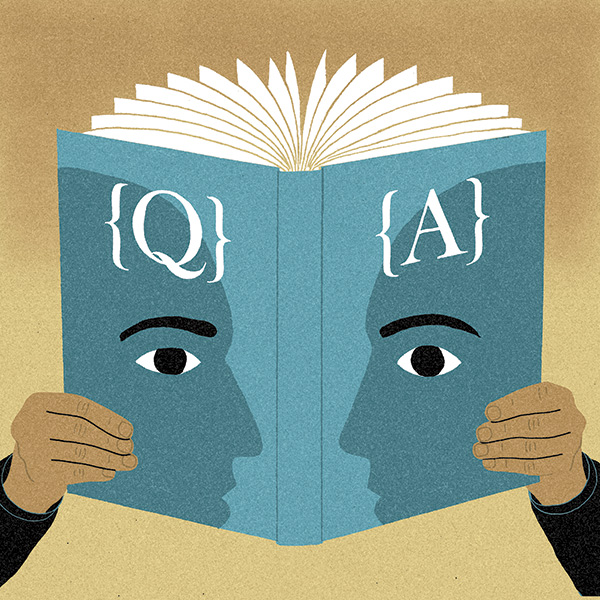Some years ago, Bob Fecho challenged a classroom of young, Southern white women to defend mainstreaming novels by black authors into standard courses rather than celebrating them during Black History Month.
“My point was that without both, some students might assume the authors are white,” says Fecho, Professor of English Education. “But I didn’t ask for people’s thoughts.” Instead, he says, he should have induced “wobble,” or just enough “disequilibrium” to prompt reflection.
Teaching itself is learned by wobble, argues Fecho, who taught English for 24 years in a big North Philadelphia high school. In books such as “Is This English?” Race, Language, and Culture in the Classroom and Teaching for the Students: Habits of Heart, Mind, and Practice in the Engaged Classroom (both published by Teachers College Press), he describes striving for classes to “unpack texts for themselves” and “individually and collectively make meaning.”
Fecho once despaired of student essays about literature as either empty or convoluted. But influenced by educator Louise Rosenblatt, he came to view reading as a “transaction” with “text” co-created by each reader’s experiences and ideas: “If I wanted my students to take greater interest in their writing, I had to take greater interest in my students.”

“We all belong to multiple cultures that include gender, sexual preference, class, interests in sports or the arts, and more. Culturally responsive pedagogy should respond to them all.”
— Bob Fecho, Professor of English Education
In the early 1990s, Philadelphia allowed its schools to divide into autonomous learning communities. Fecho’s group structured curricula around “essential questions” — for example, following clashes between Brooklyn’s blacks and Jews, the issue of how communities deal with change. The readings mixed journalism, fiction, poetry — whatever was germane.
“If you create a unit on dinosaurs, only some students will be interested,” Fecho explains. “But if you ask, ‘What does studying dinosaurs tell us about life today?’ they’ll see the cohesiveness of reading, writing, listening, speaking. They’ll learn about thinking and ethics” — a must for dis-affected teens who “could make money selling drugs and didn’t expect to live long.”
More recently, still interested in personal meaning-making, Fecho has taught the theories of the late Mikhail Bakhtin, who argued that “to make an utterance means to appropriate the words of others and populate them with one’s own intention.”
For Fecho, true “dialogic teaching” entails understanding the many “cultures” that shape students’ responses to others’ utterances and their intersection in the “cultural contact zone” of the classroom. “In this country, we conflate ‘culture’ with ‘race’ — but we all belong to multiple cultures that include gender, sexual preference, class, interests in sports or the arts, and more. Culturally responsive pedagogy should respond to them all.”
